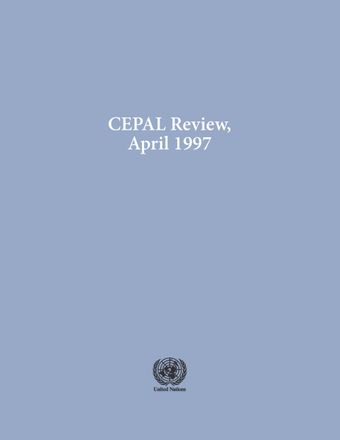-
Fiscal policy and the economic cycle in Chile
- Source: CEPAL Review, Volume 1997, Issue 61, Jul 1997, p. 135 - 147
- Spanish
-
- 26 Jul 1997
Abstract
This article studies the effect of the stabilization of fiscal expenditure and the anti-cyclical use of taxes as stabilization variables in the Chilean economy, through the calibration of a basic macro-economic model adapted to the actual conditions of that economy. The results show that some 25% of the variability of economic growth could be eliminated by obviating fiscal cyclical impulses through constant growth of public investment and consumption and through anti-cyclical taxes. On the one hand, it is proposed that a system of stabilization of the growth of fiscal expenditure should be established, through a system of rules and degrees of flexibility subject to specific clauses.
© United Nations





